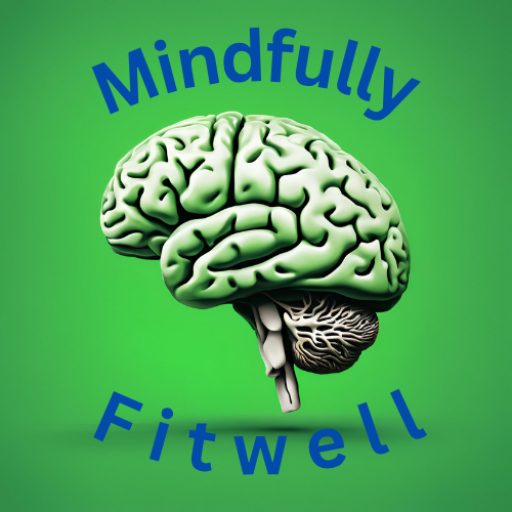Health is more than just not being sick. Being well is more than eating a salad once in a while or going for a run sometimes. Real health and wellness mean living in balance. Your body, mind, and daily habits all need to work together. But here’s the truth: staying healthy isn’t easy. Work, school, family, stress, and busy schedules can make it hard to take care of yourself. Many people know what they “should” do like eat better, move more, sleep enough, and relax but it’s easy to get off track. This is where a Health & Wellness Coach can help. A coach doesn’t just tell you what to do. They help you figure out what works for you, give you support when things get tough, and keep you motivated. A coach helps you make small, simple changes that stick. Over time, these changes add up, and you feel stronger, happier, and more balanced. With the right guidance, taking care of your body and mind can become a part of your everyday life, not something extra you have to force. A Health & Wellness Coach helps you build habits that last, so you can live healthier and enjoy life more.
What is a Health & Wellness Coach?
A Health & Wellness Coach is a trained guide who helps you live healthier. They are not doctors & do not give you medicine. They are not therapists, dietitians.
Instead, they:
- Help you set clear health goals.
- Support you in building better daily habits.
- Motivate you when you feel tired or stuck.
- Track your progress and celebrate wins.
Think of them as a partner in your health journey. You take the steps, but your coach walks beside you.
What a Coach is NOT
Many people think a coach is for “sick” people only. That is not true. A coach is not only for people with depression or for those who are overweight. He or she is for anyone who wants to live better.
A coach will not:
- Prescribe medicine.
- Treat emotional trauma.
- Replace your doctor.
Instead, they focus on the future your lifestyle, habits, and mindset.
Why Do People Need a Coach?
Life today is busy. Work, kids, social media, and stress can make it hard to care for yourself. You may want to eat better, move more, or sleep well. But keeping these habits is not easy.
Here are some reasons people need a coach:
- Lack of time: “I am too busy.”
- Low motivation: “I will start next week.”
- Confusion: “I don’t know what is healthy anymore.”
- Stress: “I feel too tired to change.”
- Loneliness: “I need support, but no one helps me.”
A coach helps you solve these problems step by step.
Key Benefits of Working with a Coach
Now let’s talk about the main benefits. These are the real ways a coach can improve your life.
1. Better Habits for Daily Life
A coach helps you create small, simple habits that last. For example:
- Drinking more water every day.
- Walking 20 minutes after dinner.
- Sleeping at the same time each night.
Small steps build big results.

2. More Energy and Motivation
When you eat better, move more, and rest well, your energy grows. A coach pushes you to keep going, even on hard days. You start to feel stronger and more alive.
3. Mental Clarity and Less Stress
Coaches teach easy tools for stress. This may be breathing, mindfulness, or planning your day better. Less stress means more peace in your mind.
4. Support and Accountability
Change is hard when you do it alone. A coach checks in with you. They remind you of your goals. They encourage you when you feel like quitting. This support keeps you moving forward.
5. Improved Confidence
As you reach small goals, your confidence grows. You see that change is possible. You feel proud and believe in yourself again.
Who Can Benefit from a Health & Wellness Coach?
Many people think coaching is only for those with health problems. But the truth is: almost everyone can benefit.
You may benefit if you:
- Want to lose weight but find it hard.
- Struggle to stay active.
- Feel stressed or burned out.
- Need better balance between work and personal life.
- Want more energy for family and hobbies.
- Simply want to live a longer, healthier life.
Even if you feel “okay,” a coach can help you move from okay to great.
Real Results Backed by Research
Wellness coaching is not just talk. Studies show that it works. For example, a Mayo Clinic study found that people who worked with a wellness coach had:
- Better quality of life.
- Less stress.
- Improved mood.
These results lasted for a long time. That means coaching is not a quick fix. It creates lasting change.
How a Coach Helps You Build Better Habits
Good habits are the foundation of health. But habits are also hard to change. For example:
- You may want to stop eating junk food.
- You may want to walk every day.
- You may want to sleep early.
At first, you try hard. But after one week, you stop. Why? Because habits are easier to start when you have guidance and support.
A coach helps in three simple ways:
- Start small – Instead of saying “I will run every morning,” the coach may say “Walk for 10 minutes three times a week.” Small wins create motivation.
- Repeat – A coach reminds you to repeat the action until it becomes natural.
- Adjust – If one plan fails, the coach helps you try a new one.
Example: Maria wanted to drink less soda. With her coach, she started by replacing one soda a day with water. After three weeks, she cut down to only one soda on weekends. Slowly, her habit changed without stress.
How Coaching Increases Energy
Energy is not only about food. It is about sleep, movement, emotions, and routine. A coach looks at your full lifestyle.
Ways a coach can increase your energy:
- Better food choices – Replace heavy meals with lighter, balanced meals.
- Daily movement – Not just gym time. Even stretching or walking counts.
- Sleep habits – Creating a bedtime routine, no screens before bed.
- Stress control – Teaching you breathing or relaxation methods.
When these areas improve, your energy rises naturally. You wake up ready for the day.
Example: Ahmed worked long hours and always felt tired. His coach asked him to add a short 15-minute walk during lunch. After two weeks, his energy improved, and he no longer needed coffee in the afternoon.

Reducing Stress and Finding Peace
Stress is everywhere — work deadlines, money worries, family pressure. Too much stress harms the body and the mind.
A coach helps reduce stress with:
- Mindfulness practices – Simple breathing for 2–3 minutes each day.
- Time management – Learning to plan your day so you feel less rushed.
- Healthy breaks – Taking 5 minutes to stretch or step outside.
- Positive mindset – Learning to focus on what you can control.
Stress reduction is not about removing problems. It is about learning how to respond calmly.
Example: Lila often stayed up late worrying about work. Her coach taught her to write down her worries in a notebook before bed. This small action gave her peace, and she started sleeping better.
Accountability and Motivation
Many people fail because they try to change alone. Without support, it is easy to quit. A coach provides accountability.
Here’s how:
- Regular check-ins – Weekly calls or messages to track progress.
- Encouragement – Celebrating small wins.
- Problem-solving – Helping you when you face obstacles.
- Long-term view – Reminding you why you started.
Example: John wanted to lose weight. Many times, he quit after one month. But with a coach, he had someone to check on him weekly. This time, he stayed consistent and lost 10 kg in six months.
Confidence and Self-Belief
When you reach even a small goal, you feel stronger. A coach helps you see your progress. This builds confidence.
- You start to believe: “Yes, I can do this.”
- You feel proud of your efforts.
- You see that change is possible in other parts of life too.
Confidence spreads. If you succeed in walking every day, you may also feel ready to start cooking healthy meals or trying yoga.
Example: Poly never believed she could exercise. With her coach, she started walking three days a week. After one month, she felt proud and said: “I never thought I could do this.” This new confidence helped her take better care of her diet too.
Why Coaching is Different from Doing It Alone
Some people ask: “Why do I need a coach? Can I not just read books or watch videos?”
Yes, you can. But information is not enough. Coaching gives:
- Personalization – Advice made for your life, not general rules.
- Consistency – Someone to keep you on track every week.
- Emotional support – A safe space to talk and share struggles.
- Long-term success – Focus on habits, not quick fixes.
Think of it like learning a new language. You could learn from apps and books. But with a teacher, you learn faster, stay motivated, and make fewer mistakes. A coach is like that teacher — but for your health.
Practical Strategies Coaches Use
A coach does not just say “be healthy.” They use clear strategies to help you step by step. Some common methods include:
1. Goal Setting (SMART Goals)
SMART stands for:
- Specific – Clear, not vague.
- Measurable – You can track it.
- Achievable – Not too hard.
- Realistic – Fits your lifestyle.
- Time-bound – Has a time frame.
Example: Instead of saying “I will eat healthy,” the coach helps you set a SMART goal: “I will eat one extra serving of vegetables at dinner five times a week for the next month.”
2. Tracking Progress
A coach may use journals, apps, or simple checklists to track your daily actions. This helps you see small wins and keeps you motivated.
3. Problem-Solving Sessions
When you face a challenge, the coach works with you to find solutions. For example, if you cannot exercise because of work hours, your coach might suggest short workouts at home instead of going to the gym.
4. Positive Reinforcement
Coaches celebrate even small improvements. This encouragement gives you energy to continue.
Coaching for Food and Nutrition
Food is a big part of health. But diets often fail because they are too strict. Coaches do not just give you a diet plan. They help you build a healthy relationship with food.
Some strategies:
- Learning portion control.
- Adding more fruits and vegetables step by step.
- Reducing sugar and processed foods without extreme rules.
- Understanding emotional eating (eating when stressed or bored).
Example: Ramesh loved fried snacks every evening. His coach did not tell him to “stop completely.” Instead, they made a plan: three days a week he would replace fried snacks with fruit. Slowly, he reduced fried food without feeling deprived.
Coaching for Movement and Fitness
Not everyone likes gyms. Some people feel shy or too busy. A coach helps you find movement that you enjoy and can keep doing.
Options may include:
- Walking in the park.
- Home yoga or stretching.
- Dancing to music.
- Sports with friends.
- Short bodyweight exercises.
The key is consistency, not perfection.
Example: Elena hated the gym but loved music. Her coach suggested dancing at home for 20 minutes. She enjoyed it, stayed consistent, and lost weight while having fun.
Coaching for Better Sleep
Sleep affects mood, weight, and energy. Many people sleep too little or sleep at the wrong times. A coach can help improve sleep by:
- Setting a fixed bedtime and wake-up time.
- Avoiding screens before sleep.
- Creating a relaxing night routine (reading, light music, or breathing).
- Making the bedroom dark, cool, and quiet.
Example: Sam always checked his phone late at night and slept poorly. His coach asked him to keep the phone outside the bedroom. After one week, his sleep improved, and his morning energy increased.
Coaching for Work-Life Balance
Many people struggle with stress from work and family. They feel there is no time for health. A coach helps you find balance.
Some methods:
- Teaching time-blocking (setting fixed times for work, rest, and self-care).
- Encouraging short breaks during work.
- Helping you say “no” to extra tasks that harm your health.
- Supporting family routines that include health (like cooking or walking together).
Example: Farah worked long hours and skipped meals. Her coach helped her plan 10-minute breaks to eat healthy snacks. With this small change, her energy improved and she became more focused at work.
The Ripple Effect – How Coaching Helps Families
Health is not only personal. When one person becomes healthier, it influences the whole family.
- If you cook healthy meals, your children eat better too.
- If you start walking daily, your partner may join you.
- If you manage stress better, your family feels calmer.
Example: When Ravi started wellness coaching, he began walking every evening. His wife and kids joined him. Soon, evening walks became a family habit. This improved everyone’s health and created family bonding time.
Community and Social Benefits
Wellness spreads beyond the family. When you improve, others around you notice. You may inspire coworkers, friends, or neighbors.
- You share healthy recipes with friends.
- You encourage colleagues to take walking breaks.
- You become a role model for your children.
In this way, your personal coaching journey creates a positive chain reaction in your community.
Long-Term Benefits of Coaching
Coaching is not about quick fixes. It is about long-lasting changes. The real value comes with time.
Here are some long-term benefits:
1. Sustainable Healthy Habits
Crash diets or extreme exercise may give fast results, but they rarely last. A coach helps you create habits that you can follow for years.
Example: Instead of a strict “no-carb” diet, your coach helps you reduce processed carbs slowly. This feels easier, so you keep the habit for life.
2. Lower Risk of Chronic Illness
Better food, exercise, and stress control reduce risks of:
- Heart disease.
- Diabetes.
- High blood pressure.
- Obesity.
Coaching is a form of prevention. Staying healthy today means fewer medical problems later.
3. Stronger Emotional Health
With less stress and more confidence, your emotional wellbeing improves. You feel calmer and more positive.
4. Better Relationships
When you feel healthy and balanced, your relationships improve. You have more patience, energy, and joy to share with others.
5. Longer Life Quality
It’s not just about living longer. It’s about living better. With good health, you enjoy travel, hobbies, and family time well into older age.

Myths About Health & Wellness Coaches
Many people do not fully understand what a coach does. This creates myths. Let’s clear them.
Myth 1: A coach is only for sick people.
Truth: Anyone can benefit. Even healthy people may need support to stay motivated.
Myth 2: Coaching is the same as therapy.
Truth: Therapy often looks at the past and deep emotional issues. Coaching focuses on the present and future — your daily habits and lifestyle.
Myth 3: Coaching is expensive and not useful.
Truth: Coaching is an investment in health. Studies show it reduces stress, improves quality of life, and helps people maintain healthy habits.
Myth 4: I can do it alone with books and apps.
Truth: Information is easy to find. But real change needs accountability and support. A coach gives both.
Myth 5: A coach will control my life.
Truth: A coach does not force you. You choose your goals. The coach only guides and supports you.
How to Choose the Right Coach
Not every coach will be right for you. Choosing wisely is important.
Here are steps to find the right coach:
1. Check Training and Certification
Look for coaches who have proper training in health and wellness. This ensures they follow safe, evidence-based methods.
2. Understand Their Approach
Some coaches focus more on fitness, others on nutrition, others on stress. Choose one who matches your needs.
3. Look for Good Communication
A good coach listens. They should understand your lifestyle and respect your choices.
4. Ask About Experience
A coach with real experience may have more practical tools and success stories.
5. Try a Session First
Many coaches offer a first consultation. Use this time to see if you feel comfortable with them.
Signs You Are Ready for Coaching
You may wonder, “How do I know if I need a coach?” Here are some signs:
- You keep starting and stopping healthy habits.
- You feel stuck with your health.
- You know what to do, but don’t do it.
- You want more energy and balance in life.
- You feel stressed and cannot manage it alone.
- You want someone to support and motivate you.
If one or more of these feels true, a coach could be very helpful.
Real-Life Success Stories
Hearing stories can make benefits more clear.
- Sarah’s Story: Sarah struggled with weight and low energy. With her coach, she made small diet changes and walked daily. After six months, she lost 8 kg and felt stronger.
- David’s Story: David was always stressed at work. His coach taught him breathing exercises and time management. He now feels calmer and gets more done.
- Amina’s Story: Amina wanted better sleep. Her coach helped her create a bedtime routine. Now she sleeps 7 hours a night and feels happier.
These stories show that change is possible for anyone.
The Bigger Picture
When we talk about health, many people think only of diet or exercise. But real wellness is bigger. It includes:
- How you eat.
- How you move.
- How you sleep.
- How you handle stress.
- How you feel about yourself.
- How you connect with others.
A Health & Wellness Coach looks at all of these areas together. This is why coaching creates deep and lasting change.
The Power of Small Steps
One important lesson from coaching is this: big change comes from small steps.
You do not need to:
- Run a marathon tomorrow.
- Eat only salads.
- Meditate for one hour daily.
Instead, you can:
- Walk 10 minutes today.
- Add one vegetable to your meal.
- Breathe deeply for 2 minutes before bed.
A coach helps you find these small steps. Then, over time, small steps grow into a healthy lifestyle.
Why Coaching Works Better Than Quick Fixes
Many people try fad diets, extreme workouts, or expensive supplements. They often fail because:
- They are too hard to follow.
- They don’t fit your lifestyle.
- They only focus on one part of health.
Coaching is different. It focuses on:
- Simple, realistic actions.
- Building habits you can keep for life.
- Supporting the whole person, not just one problem.
That is why coaching often succeeds where quick fixes fail.
A Healthier, Happier You
Health and wellness are not luxuries. They are the foundation of a good life. Without them, everything else becomes harder.
A Health & Wellness Coach can guide you on this journey. They provide support, structure, and motivation. They help you create habits that last.
The key benefits include:
- Better daily habits.
- More energy.
- Less stress.
- Greater confidence.
- Improved long-term health.
Most of all, coaching helps you feel in control of your life again.
If you want to live with more balance, energy, and joy, working with a Health & Wellness Coach may be the best step forward.
FAQs About Health & Wellness Coaching
1. What exactly does a Health & Wellness Coach do?
They guide you in making healthy lifestyle changes. And help with food, exercise, stress, sleep, and balance & do not give medicine or therapy.
2. Is a Health Coach the same as a doctor or therapist?
No. Doctors treat illness. Therapists work on deep emotional issues. Coaches focus on daily habits and lifestyle improvements.
3. Who should get a coach?
Anyone who wants to improve health, reduce stress, or feel more balanced. You don’t need to be sick to benefit.
4. How long does coaching take to see results?
It depends on your goals. Many people notice small improvements in weeks. Bigger changes may take months. The good thing is that results often last.
5. Is coaching expensive?
Costs vary, but think of it as an investment. Better health can save money on medical bills in the future. Many people say the benefits are worth it.
6. Can I do coaching online?
Yes. Many coaches work online through calls or video sessions. This makes it easy and flexible.
7. What if I fail to follow the plan?
Coaches understand that life is busy. If you slip, they don’t judge. They help you adjust and keep going.
8. Do coaches give diet charts or workout plans?
Some may provide simple plans, but the focus is not strict rules. The goal is to help you build habits that fit your lifestyle.
9. How do I know if a coach is right for me?
Have a trial session. See if you feel comfortable, listened to, and supported. The right coach will make you feel understood.
10. What results can I expect?
Most people see better energy, less stress, improved confidence, and healthier habits. With time, risks of illness may also go down.
